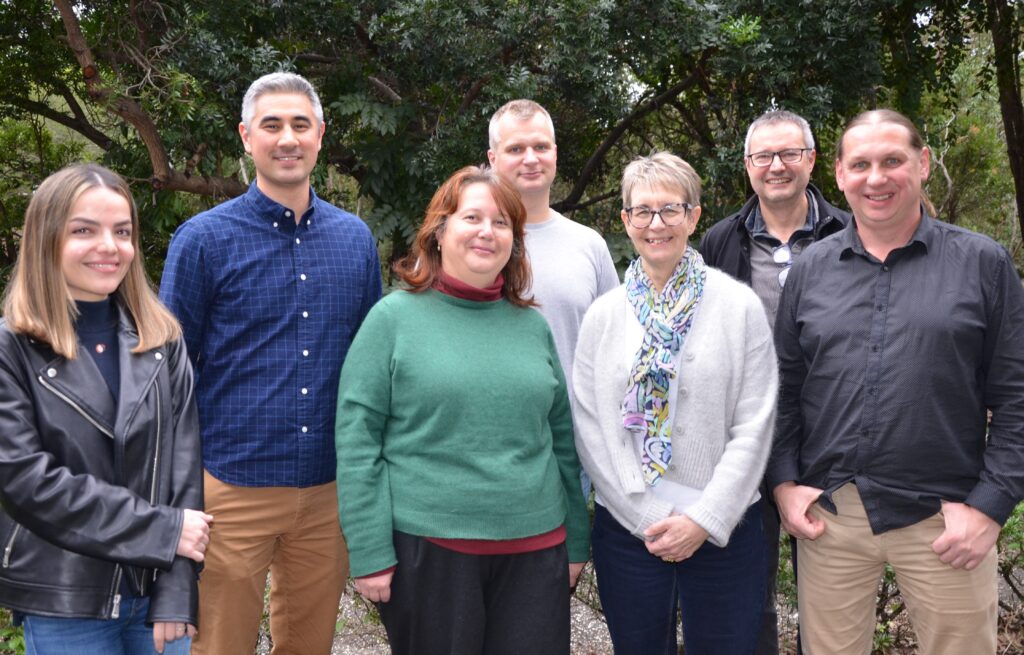Australia’s social science research capacity is set to be boosted with the launch of a new initiative designed to improve research infrastructure, leading to better outcomes for the community.

The new Social Science Research Infrastructure Network (SSRIN) will address critical challenges currently faced by social science researchers, including access to data, gaps in digital research skills and fragmented research networks.
Life Course Centre Chief Investigator Professor Wojtek Tomaszewski, from The University of Queensland, is leading the national project and said this initiative represented a significant step forward in transforming the social science research landscape.
“As researchers conducting robust investigation, we face some obstacles including access to, and utilising, large and critical datasets,” Professor Tomaszewski said.
“But this project aims to improve access to key data infrastructure and enhance its usability, boost computational skills across the social science community, and improve collaboration between researchers and various sectors.
“By addressing the gaps in research infrastructure, we can better equip our researchers to tackle pressing societal challenges, from inequality to public health.”
The initiative builds on the directions from the Decadal Plan for Social Science Research Infrastructure 2024-33 delivered by the Academy of the Social Sciences in Australia with support from the Life Course Centre, which outlined a vision for enhancing Australia’s social science research capabilities over the next decade.
It has significant support, with the Australian Research Data Commons (ARDC) co-investing $4.43 million in the initiative, alongside co-investment from the partners bringing the total investment to $8.86 million.
SSRIN will focus on improving data infrastructure – with a particular focus on integrated government administrative data, on building research capacity, and fostering collaboration among universities, government, NGOs and communities.
“This project will bring together academics, government analysts, data custodians, and policy makers to build research infrastructure that truly supports researchers,” Professor Tomaszewski added.
“The project will integrate the perspectives of academic and government researchers, who will be consulted at key stages over the life of the project.
“Additionally, we’ll utilise national and international experts and technical advisors to ensure that infrastructure developments are informed by the latest knowledge on methodologies, relevant technologies and legal frameworks.
“This project will provide social science researchers access to the data and tools they need to understand and address the pressing and complex needs of our society.”
In addition to Professor Tomaszewski, Life Course Centre’s Chief Investigator Professor Francis Mitrou will co-lead the development of guidelines for the use of administrative Indigenous data, and Dr Tomasz Zając and Dr Matthew Curry will oversee components of SSRIN in relation to data discoverability, data integration and capability development.
Life Course Centre Director Professor Janeen Baxter is a member of the project’s Steering Committee.
“This project aligns with the important data for policy work we’ve been undertaking at the Life Course Centre since it commenced in 2014,” Professor Baxter said.
“As social science researchers, we’re committed to enhancing data infrastructure to ensure researchers are better equipped to address critical social challenges.”
Set to run until June 2028, the SSRIN project is led by UQ’s Institute for Social Science Research in partnership with the Life Course Centre, Australia Research Data Commons (ARDC), Australian Bureau of Statistics, Australian National University, National Centre for Healthy Ageing at Monash University, and The Kids Research Institute Australia at the University of Western Australia.
The Social Science Research Infrastructure Network received co-investment (doi.org/10.3565/8d3z-sq52) from the ARDC. The ARDC is enabled by the National Collaborative Research Infrastructure Strategy (NCRIS).